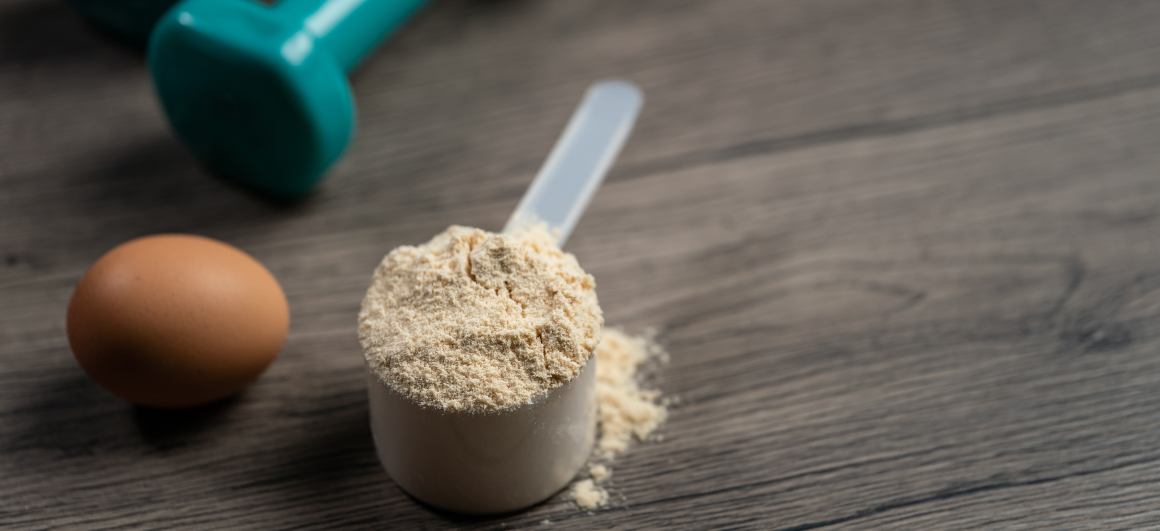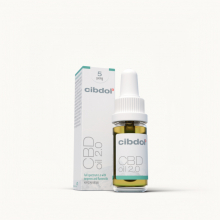How Does Protein Build Muscle? The Role of CBD Oil
Published:
Protein is essential for building and repairing muscle tissue. But how exactly does protein work to build muscle? Let's explore the science behind muscle growth and the potential role of CBD oil in supporting this process.
Contents:
- Understanding Muscle Growth
- The Importance of Amino Acids
- Maximizing Muscle Growth with Protein
- The Potential Role of CBD Oil
- Combining Protein and CBD Oil
- Final Thoughts
-
Frequently Asked Questions (FAQs)
- How much protein should I consume daily to build muscle?
- Can I build muscle without eating meat?
- Is it better to consume protein before or after a workout?
- Can CBD oil help with muscle soreness?
- Is it safe to use CBD oil for muscle growth?
- How can I incorporate more protein into my diet?
- Can I build muscle without using protein supplements?
- How long does it take to see results from a muscle-building program?
- Summary

Understanding Muscle Growth
When you engage in resistance training or weightlifting, you create small tears in your muscle fibers. This damage stimulates your body to repair and rebuild the muscle tissue, making it stronger and larger than before.
Protein plays a crucial role in this muscle-building process. Your body breaks down the protein you consume into amino acids, which are then used to repair and rebuild the damaged muscle fibers.
The Importance of Amino Acids
Amino acids are the building blocks of protein. There are 20 different amino acids that your body needs to function properly, and nine of them are considered essential because your body cannot produce them on its own.
These essential amino acids, particularly leucine, isoleucine, and valine (known as branched-chain amino acids or BCAAs), are crucial for muscle growth and repair.
Maximizing Muscle Growth with Protein
To support muscle growth, it's important to consume enough protein in your diet. The recommended daily intake of protein varies depending on factors such as age, gender, and activity level.
For individuals engaging in regular resistance training, a protein intake of 1.6-2.2 grams per kilogram of body weight per day is often recommended to support muscle growth and repair.
It's also important to consume protein throughout the day, rather than in one large meal, to keep a steady supply of amino acids available for muscle repair and growth.
The Potential Role of CBD Oil
CBD oil, derived from the hemp plant, has gained popularity in recent years for its potential health benefits. While research on CBD and muscle growth is limited, some studies suggest that CBD may have anti-inflammatory properties that could support muscle recovery.
Inflammation is a natural response to muscle damage, but excessive inflammation can hinder the muscle repair process. By reducing inflammation, CBD oil may help support muscle recovery and growth.
However, it's important to note that more research is needed to fully understand the potential benefits of CBD oil for muscle growth and recovery.
Combining Protein and CBD Oil
If you're interested in incorporating CBD oil into your muscle-building routine, it's important to choose a high-quality product from a reputable source.
You can consider adding CBD oil to your post-workout protein shake or taking it as a supplement alongside your protein intake.
As with any new supplement, it's always best to consult with a healthcare professional before adding CBD oil to your routine to ensure it's safe and appropriate for your individual needs.
Final Thoughts
Protein is essential for building and repairing muscle tissue, and consuming enough protein in your diet is crucial for maximizing muscle growth.
While the potential role of CBD oil in muscle growth is still being explored, its anti-inflammatory properties may support muscle recovery and repair.
By combining a protein-rich diet with regular resistance training and potentially incorporating CBD oil, you can create an optimal environment for muscle growth and achieve your fitness goals.
Frequently Asked Questions (FAQs)
How much protein should I consume daily to build muscle?
The amount of protein you need to build muscle depends on factors such as your body weight, age, and activity level. As a general guideline, consuming 1.6-2.2 grams of protein per kilogram of body weight per day is recommended for individuals engaging in regular resistance training.
Can I build muscle without eating meat?
Yes, it is possible to build muscle on a plant-based diet. You can obtain protein from sources like legumes, nuts, seeds, whole grains, and plant-based protein powders. However, it's important to ensure you're consuming a variety of protein sources to get all the essential amino acids your body needs.
Is it better to consume protein before or after a workout?
Consuming protein both before and after a workout can be beneficial for muscle growth and recovery. A pre-workout protein meal can help provide energy and amino acids for your muscles during exercise, while a post-workout protein meal can support muscle repair and growth.
Can CBD oil help with muscle soreness?
Some studies suggest that CBD oil may have anti-inflammatory properties that could help reduce muscle soreness and support recovery. However, more research is needed to fully understand the potential benefits of CBD oil for muscle soreness and recovery.
Is it safe to use CBD oil for muscle growth?
While CBD oil is generally considered safe, it's important to choose a high-quality product from a reputable source and consult with a healthcare professional before adding it to your routine. This is especially important if you have any underlying health conditions or are taking medications that could interact with CBD.
How can I incorporate more protein into my diet?
There are many ways to increase your protein intake, such as:
- Eating lean meats, fish, eggs, and dairy products
- Incorporating plant-based protein sources like legumes, nuts, and seeds
- Using protein powders in smoothies or baked goods
- Snacking on high-protein foods like Greek yogurt, cottage cheese, or hard-boiled eggs
Can I build muscle without using protein supplements?
Yes, it is possible to build muscle without using protein supplements. Whole food protein sources can provide all the necessary amino acids for muscle growth and repair. However, protein supplements can be a convenient way to ensure you're meeting your daily protein needs, especially if you have a busy lifestyle or struggle to consume enough protein through diet alone.
How long does it take to see results from a muscle-building program?
The time it takes to see results from a muscle-building program varies from person to person. Factors such as genetics, age, diet, and training consistency can all impact the rate of muscle growth. On average, you may start to notice changes in your body composition and strength within 4-8 weeks of consistent training and proper nutrition.
Summary
Protein is essential for building and repairing muscle tissue. When you engage in resistance training, you create small tears in your muscle fibers, which stimulates your body to repair and rebuild the muscle tissue, making it stronger and larger. Your body breaks down the protein you consume into amino acids, which are then used to repair and rebuild the damaged muscle fibers. Essential amino acids, particularly branched-chain amino acids (BCAAs), are crucial for muscle growth and repair.
To support muscle growth, it's important to consume enough protein in your diet, with a recommended intake of 1.6-2.2 grams per kilogram of body weight per day for individuals engaging in regular resistance training. Consuming protein throughout the day, rather than in one large meal, helps keep a steady supply of amino acids available for muscle repair and growth.
CBD oil, derived from the hemp plant, has gained popularity for its potential health benefits. While research on CBD and muscle growth is limited, some studies suggest that CBD may have anti-inflammatory properties that could support muscle recovery. By reducing inflammation, CBD oil may help support muscle recovery and growth. However, more research is needed to fully understand the potential benefits of CBD oil for muscle growth and recovery.









